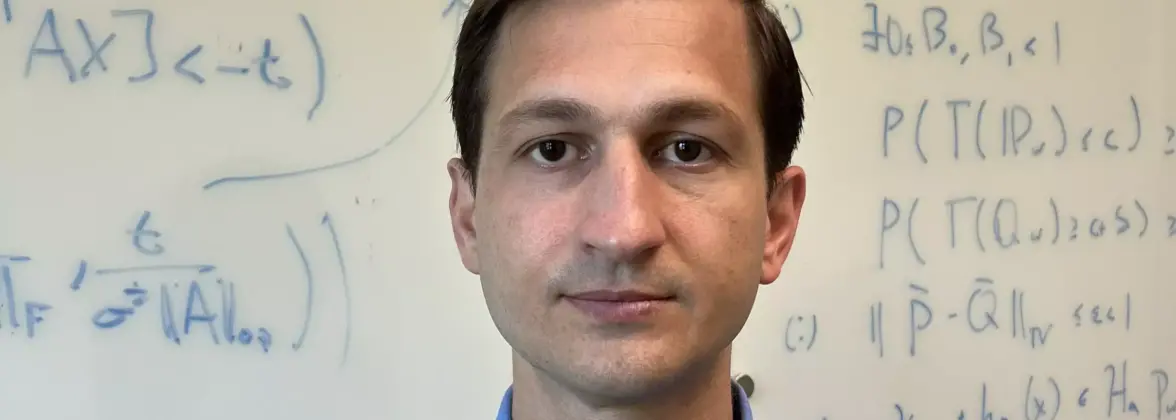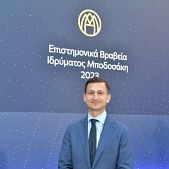
A Greek in the “battle” against the dangers of artificial intellig
The debate on artificial intelligence and its potential has been well and truly opened up in the global sphere. Its rapid development and its potential at all levels has made even its biggest supporters call for safeguards.
Recently, seven colossal technology companies leading the AI revolution have agreed to manage the risks arising from it. Representatives of Amazon, Anthropic, Google, Inflection, Meta, Microsoft and OpenAI made the joint announcement with the US President, Joe Biden, at the White House, after many warnings about the risks posed by the development of this technology.
A young Greek scientist, the assistant professor of Management Science and Technology at Stanford University, Vassilis Syrganis, who was recently awarded a prize by the Bodossaki Foundation for his work, is working on these dangers.
“Artificial intelligence is often used, in decision systems, completely mechanically and as if it’s a given that what the machine learning model has learned is the reality,” he says in an interview, explaining that “This is a major problem that motivated my research, that we learn these models and then we think that this is how the world works. This, leads us to incorrect conclusions, you see relationships that the model learns that have nothing to do with how the world actually works.”
Speaking about the biases and errors of machine learning systems, and how to solve them through the method of casual inference, Syganis spoke at the recent scientific workshop on the applications of artificial intelligence, organised by the Hellenic Institute of Advanced Studies (HIAS), the institute of the Greeks of the Diaspora, in Athens.
“If the errors of artificial intelligence systems are not corrected, the risks in the long run are great, even to create social problems of inequality,” he notes, citing as an example the use of machine learning systems in loans, where even the location of residence of a prospective borrower can be a criterion for exclusion from the banking system, resulting in a systematic racism through such algorithmic decision-making systems.
When asked how close we might be to creating a general, artificial intelligence, Vassilis Syganis replies: “it is very unlikely that computers alone would have all the background that an expert in a field has. What language-based AI models do may look quite intelligent”, but “there are many other dimensions to intelligence besides the language we express”.
Born in Thessaloniki, Vassilis Synganis studied at the School of Electrical Engineering of the National Technical University of Athens. He then did his PhD at the Department of Computer Science at Cornell University in the USA, where the result of his PhD thesis was a new mathematical theory for studying the performance of complex economic systems, with main applications in electronic markets.
He worked at Microsoft Research for eight years, where he focused on the analysis of causality relationships using machine learning techniques.
In September 2022, he was elected an assistant professor in the Department of Management Science and Technology at Stanford University. There, he has focused on causality relationship discovery and decision making using large-scale data, with major applications in biomedical, business management, and electronic platforms. His research received the Amazon Research Award for 2023.









